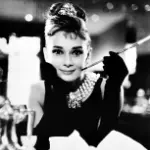I lowered my expectations for Ridley Scott's "Napoleon" (the most anticipated film in the past three years) but was still brutally disappointed. If "Killers of the Flower Moon " is a mediocre foot binding, then "Napoleon" has a malicious intent of being clever but ending up clumsy, making the promotional poster draped over the Arc de Triomphe seem like a heap of dung on France and history.

As a non-dogmatic fan of Napoleon, I don't mind adapting historical facts or emphasizing certain aspects of personality. After all, movies are a form of interpretation, but whether or not they are established is another matter. Ridley Scott's "Gladiator" and "Kingdom of Heaven" had significant alterations, at least completing a Western narrative under the shell of history. However, "Napoleon" relies on a very stereotypical understanding—Hitler being violent, a sycophantic lickspittle, a neurotic clown, presented in a sarcastic tone, which comes off as awkward.

Satirical comedy can take a different path, but compared to the smooth and thorough approach of "The Death of Stalin," Ridley Scott didn't strike a good balance between comedy and drama. The distortion and exaggeration of Napoleon's dark side and the neglect of his military and political talents and personal charm contradict each other. Amid mockery, there is a lack of explanation for how such a pitiful character climbed to a high position—not just because the fragmented narrative lacks depth but also because the film seems to overlook the intricacies of Napoleon's rise, skipping over the Civil Code. Perhaps the four-hour director's cut can fill the narrative gaps on the surface, but the deeply rooted, Caesar-like arrogance and prejudice seem unchangeable.

Taking Napoleon and Josephine's relationship as the axis may offer a different approach, but compared to the romantic and pathological masochistic relationship in "Phantom Thread," the adaptation in this film is already so absurd that Napoleon's two crucial decisions to return home are driven by resentment over the alleged infidelity of his "wife." Military genius and historical currents all give way to an enchanted mind. Joaquin and Vanessa deliver excellent performances, but more chemistry is needed to give this emotional storyline sufficient persuasiveness.
The film truly focuses on three battle scenes, reflecting the author's attitude: the Battle of Toulon (the green and weak under the limelight), the Battle of Austerlitz (cold-blooded slaughter overshadowing military strategy), and the Battle of Waterloo (the fallen hero in the glory). Although the real battle situations are simplified, the large-scale coordination and pacing still showcase Scott's expertise, ensuring a certain level of entertainment.
As the "most outstanding visual master after Stanley Kubrick" and his fans, Scott had the chance to inherit Kubrick's legacy and complete his "the greatest movie ever made."

However, it now seems like "what could have been." Reading Kubrick's script last night, I found many similarities in plot selection, dialogue handling, and even montage, making it hard not to suspect that both directors had seen this version. Kubrick's understanding of Napoleon is comprehensive, based on his immense effort in reading hundreds of documents and on-site investigations over two years.

To achieve the objective weight of history, at least one-third of the script uses now-scorned voiceovers, and many insightful dialogues are taken from historical records. Originally planned as a two-part, three-hour epic, now it's reduced to a 148-page shooting script and a database of over ten thousand cards. Scott's version feels somewhat shallow and pandering, and Kubrick's ready-made, rich emotional plotline turns Napoleon's unbelievable romantic history into a less convincing fairy tale. It's a pity, a regret for Ridley Scott's disappointing work.








Share your thoughts!
Be the first to start the conversation.